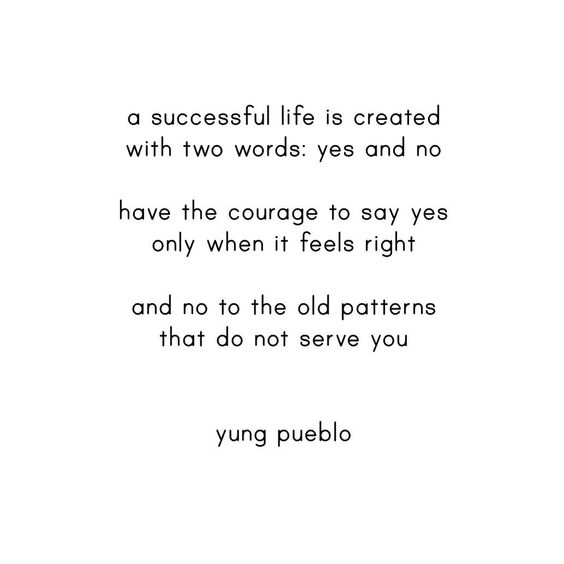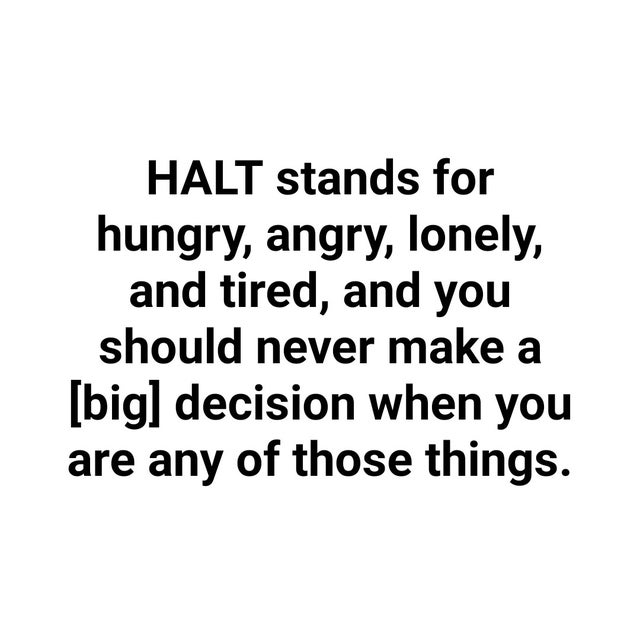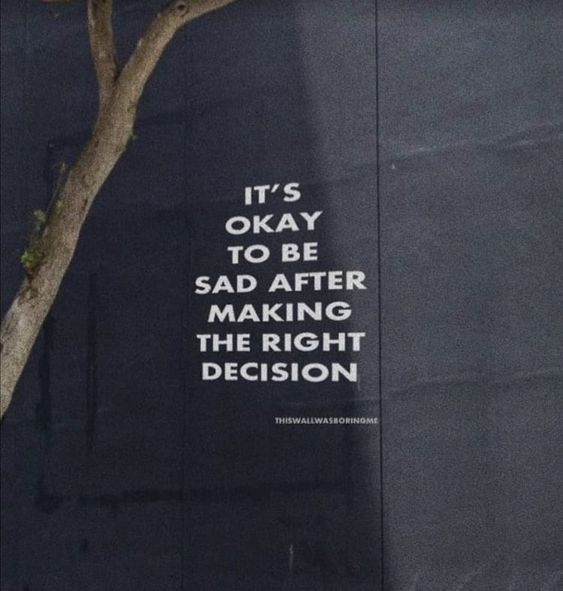“Saying no saves you time in the future. Saying yes costs you time in the future. No is like a time credit. You can spend that block of time in the future. Yes is like a time debt. You have to repay that commitment at some point. No is a decision. Yes is a responsibility.”
James Clear, Blog
“Flying across the country is safer than driving. If your goal is to get to Reno, the safest choice is to fly there, not to drive. And if you know of someone who dies in a plane crash on the way to Reno, they didn’t make a bad decision when they chose to fly. There was certainly a bad outcome, though. Decisions are good even if the outcomes aren’t.”
Seth Godin, The Practice (Page 26)
Johann Wolfgang von Goethe Quote on Making Committed Decisions and How “Luke Warm” Isn’t Good Enough
“Until one is committed, there is hesitancy, the chance to draw back, always ineffectiveness… the moment one definitely commits oneself then Providence moves, too. All sorts of things occur to help one that would never otherwise have occurred… boldness has genius, power, and magic in it. Begin it now.”
Johann Wolfgang von Goethe, Sunbeams (Page 29)
Beyond the Quote (Day 401)
The problem with staying in an uncommitted place is that it splits your mental resources. One avenue focuses on opportunity while the other focuses on risks. One avenue on possibility while the other focuses on failure. One focuses on reasons for “yes” while the other focuses on reasons for “no.” This is no way to succeed—in anything. It’s a “luke-warm” approach to achieving goals when what’s needed is heat—passion, boldness, enthusiasm! What’s needed is a full commitment of mental resources.
Read More »Johann Wolfgang von Goethe Quote on Making Committed Decisions and How “Luke Warm” Isn’t Good Enough“The accident would always make me think of the Apache women, and of all the decisions that go into making a life—the choices people make, together and on their own, that combine to produce any single event. Grains of sand, incalculable, pressing into sediment, then rock.”
Tara Westover, Educated (Page 40)
“Outside input is great, even necessary. It’s smart to receive feedback. But once you’ve heard all the opinions, there comes a point when you have to make your own choice.”
Alicia Keys, More Myself (Page 239)
“I’ve made a lot of decisions from my head. I’ve chosen to go in this direction or that one based on finances. Or because something seems like a great opportunity. Or because I don’t want to hurt people’s feelings or disappoint them. Or because someone is pushing me toward an agenda that serves them. But when I’ve listened to my heart—when I’ve trusted what my spirit is telling me—that yes has always steered me right.”
Alicia Keys, More Myself (Page 185)
James Clear Quote on Saying No and How To Get Better At Saying It
“When you say no, you are only saying no to one option. When you say yes, you are saying no to every other option. No is a choice. Yes is a responsibility.”
James Clear, Blog
Beyond the Quote (312/365)
This goes out to everybody who has a hard time saying, “No.“ Sure, saying no can be hard when you’re talking to a friend, family member, coworker, or even acquaintance. I get it. You don’t want to let the people you care about down. You don’t want to disappoint or upset those who ask you for a favor. You don’t want things to get awkward. But, as Clear points out above, what’s important to understand is that saying yes isn’t free of consequence in itself. It means you are saying no to every other option instead.
Read More »James Clear Quote on Saying No and How To Get Better At Saying ItTony Robbins Quote on Doing What You Know Because Knowing What To Do Isn’t Enough
“It not knowing what to do, it’s doing what you know.”
Tony Robbins
Beyond the Quote (286/365)
While common sense is common (although some might argue), common sense is not common practice. I find it to be true more and more every day that what we are lacking in the world isn’t more solutions. Solutions are plentiful. What we’re lacking is execution of solutions. What we’re lacking is people’s ability to choose to do what’s hard over what’s convenient and expedient. What we’re lacking is the will, work ethic, and wherewithal required to bring the viable solutions that have already been thought up, to life—to our lives. Or is there more to it than just that?
Read More »Tony Robbins Quote on Doing What You Know Because Knowing What To Do Isn’t EnoughJames Clear Quote on Decisions and How Understanding If One Is Reversible Or Not Can Help You Decide
“If a decision is reversible, the biggest risk is moving too slow. If a decision is irreversible, the biggest risk is moving too fast.”
James Clear, Blog
Beyond the Quote (212/365)
Let’s start by figuring out which types of decisions are which. Not going to college, for example, is a decision that can easily be reversed. You can always go back to college at a later point in time. Going to college and getting a degree in something that you aren’t passionate about or uninterested in pursuing is a decision that is irreversible. Quickly committing to college when you’re unsure, undecided, or confused about your path is a big risk. Especially if the college you’re committing quickly to has a high tuition cost.
Read More »James Clear Quote on Decisions and How Understanding If One Is Reversible Or Not Can Help You DecideQuote about Curating Every Aspect Of Your Life and Never Settling For Less Than Your Best
“Don’t settle for nice, for pleasant, for familiar. Keep looking until you find something that really moves you, that resonates with your core. And I mean this for people, for interests, for hobbies, for your possessions, clothes, music, books, art. Everything. Curate every aspect of your life, as much as you can. It’s in the things that deeply inspire us that we find ourselves. Surround yourself with truth, and you’ll have build yourself a heaven.”
Unknown
Beyond the Quote (201/365)
Curate every aspect of your life because if you don’t then there will be aspects of your life that aren’t curated. Sounds like a, “duh” kind of statement, I know, but, to curate suggests a very personal process that involves choosing what and who to allow, what and who to avoid, what and who to include, and what and who to block out.
Read More »Quote about Curating Every Aspect Of Your Life and Never Settling For Less Than Your BestJ. Cole Quote from Snow On Tha Bluff and How It’s More Effective To Treat People Like Children
“I would say it’s more effective to treat people like children
Understandin’ the time and love and patience that’s needed to grow
This change is inevitable but ain’t none of us seen this before
Therefore we just gotta learn everything as we go”
J. Cole, Snow On Tha Bluff
Beyond the Quote (186/365)
There’s no disrespect in treating people “like children” in this way. It’s actually a brilliant way to look at uniquely challenging situations. For, what’s the difference between adults and children anyway? Development and experience? Adults are obviously developmentally more mature physically, mentally, and emotionally. And beyond that, the only other real difference is experience. Adults have undergone more experiences in their lives which have had more direct effects on how they think, feel, and act. And the reason most adults make better decisions is because their “better” judgement comes from their “bad” judgement remembered. Most children are still in the “bad” judgement phase.
Read More »J. Cole Quote from Snow On Tha Bluff and How It’s More Effective To Treat People Like Children“Good decisions are not made by those who are running on empty. What kind of interior life can you have, what kind of thinking can you do, when you’re utterly and completely overworked? It’s a vicious cycle: We end up having to work more to fix the errors we made when we would have been better off resting, having consciously said no instead of reflexively saying yes. We end up pushing good people away (and losing relationships) because we’re wound so tight and have so little patience.”
Ryan Holiday, Stillness is the Key (Page 225)
“No one has less serenity than the person who does not know what is right or wrong. No one is more exhausted than the person who, because they lack a moral code, must belabor every decision and consider every temptation. No one feels worse about themselves than the cheater or the liar, even if—often especially if—they are showered with rewards for their cheating and lying. Life is meaningless to the person who decides their choices have no meaning.”
Ryan Holiday, Stillness is the Key (Page 99)
“Our job is not to ‘go with our gut’ or fixate on the first impression we form about an issue. No, we need to be strong enough to resist thinking that is too neat, too plausible, and therefore almost always wrong. Because if the leader can’t take the time to develop a clear sense of the bigger picture, who will? If the leader isn’t thinking through all the way to the end, who is?” ~ Ryan Holiday, Stillness is the Key (Page 14)
“The decisions we can’t make with confidence end up being made for us.” ~ Humble the Poet, Things No One Else Can Teach Us (Page 56)
“Leadership decisions are inherently challenging and take practice. Not every decision will be a good one: all leaders make mistakes. No leader, no matter how competent and experienced, is immune from this. For any leader, handling those mistakes with humility is the key. Subordinates or direct reports don’t expect their bosses to be perfect. When the boss makes a mistake but then owns up to that mistake, it doesn’t decrease respect. Instead, it increases respect for that leader, providing he or she possesses the humility to admit and own mistakes and, most important, to learn from them.” ~ Jocko Willink, Extreme Ownership (Page 287)
“There is no 100 percent right solution. The picture is never complete. Leaders must be comfortable with this and be able to make decisions promptly, then be ready to adjust those decisions quickly based on evolving situations and new information. Intelligence gathering and research are important, but they must be employed with realistic expectations and must not impede swift decision making that is often the difference between victory and defeat. Waiting for the 100 percent right and certain solution leads to delay, indecision, and an inability to execute. Leaders must be prepared to make an educated guess based on previous experience, knowledge of how the enemy operates, likely outcomes, and whatever intelligence is available in the immediate moment.” ~ Leif Babin, Extreme Ownership (Page 254)


